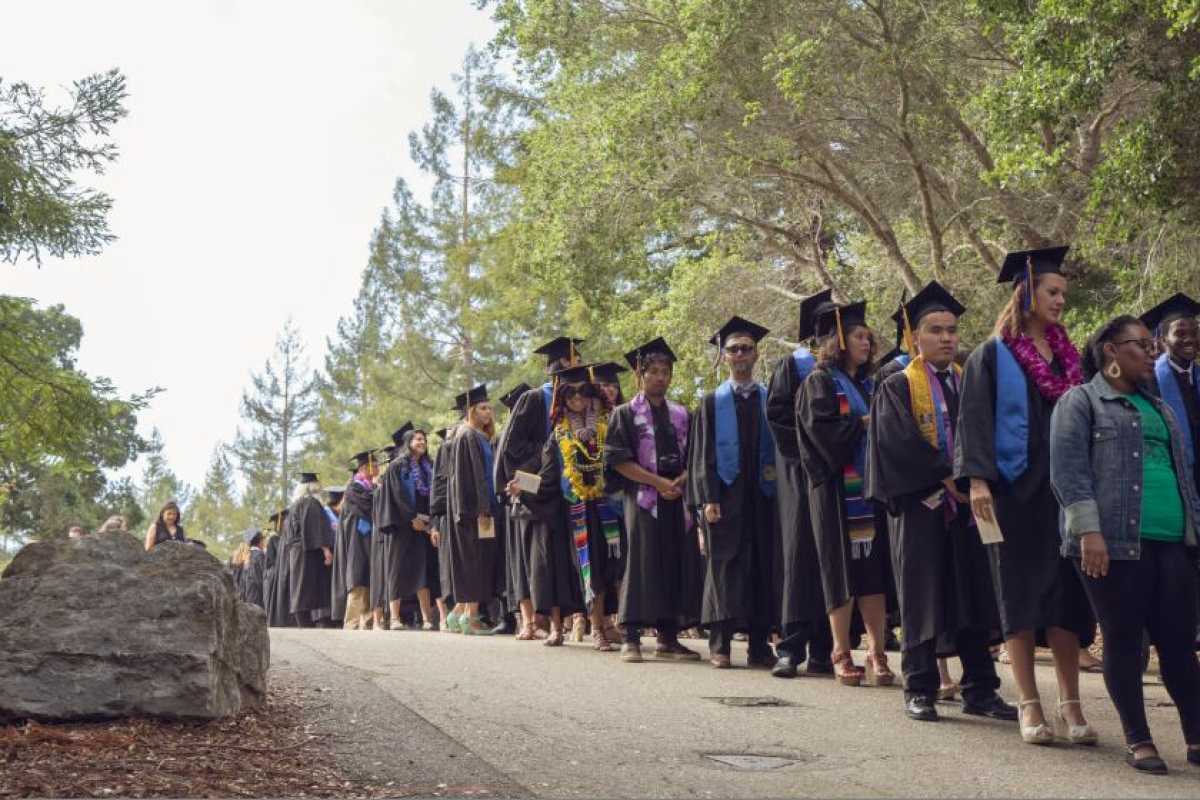Education
UC Santa Cruz Returns to Traditional Commencement Ceremony after Feedback on Slug Crossing

UC Santa Cruz Chancellor Cynthia Larive announced on Monday that the campus will be reverting to its old-style commencement ceremony following feedback opposing the university’s Slug Crossing format which has been in place for the past three years.
Slug Crossing consisted of a trimmed-down ceremony spread over three days, with each college’s segment lasting approximately 1½ hours. Instead of sitting with their fellow classmates from their residential college, graduates would walk across the stage, take a photo, and then gather on the East Upper Field.
In response to the feedback received from the community, Larive stated, ‘While our previous Slug Crossing format allowed for more guests and a front-row view as graduates crossed the stage, there were still many who preferred a traditional commencement format.’
Last year, students and college provosts expressed their disappointment with Slug Crossing, stating their belief that the traditional ceremony held more significance. Porter College Provost Sean Keilen, who also chairs the Council of Provosts, expressed his delight upon hearing the news of the return to the old-style ceremony, saying, ‘We’re very, very grateful that the chancellor listened to what we had to say and the arguments that we made.’
During a meeting last fall with consultants hired by the university to review the commencement ceremony, all the provosts echoed their concerns regarding Slug Crossing and their desire to return to the traditional format. Keilen explained that while Slug Crossing was beneficial for families in terms of logistics, it did not allow for students to sit together and celebrate their academic achievements as a class.
Larive’s announcement on Monday came after receiving input from various campus stakeholders and a recommendation from the campus office of University Advancement (UA), which had consulted with an outside event advising and production company. UA concluded that in the future, an off-campus venue would be necessary to accommodate the increasing number of graduates and guests attending the ceremony, citing UC Davis and UC Riverside as examples that had already made this transition.
The decision to return to the traditional commencement ceremony at UC Santa Cruz reflects the university’s commitment to meeting the preferences and desires of their graduating students and their families, allowing them to experience the collective celebration of their academic achievements before moving forward.












